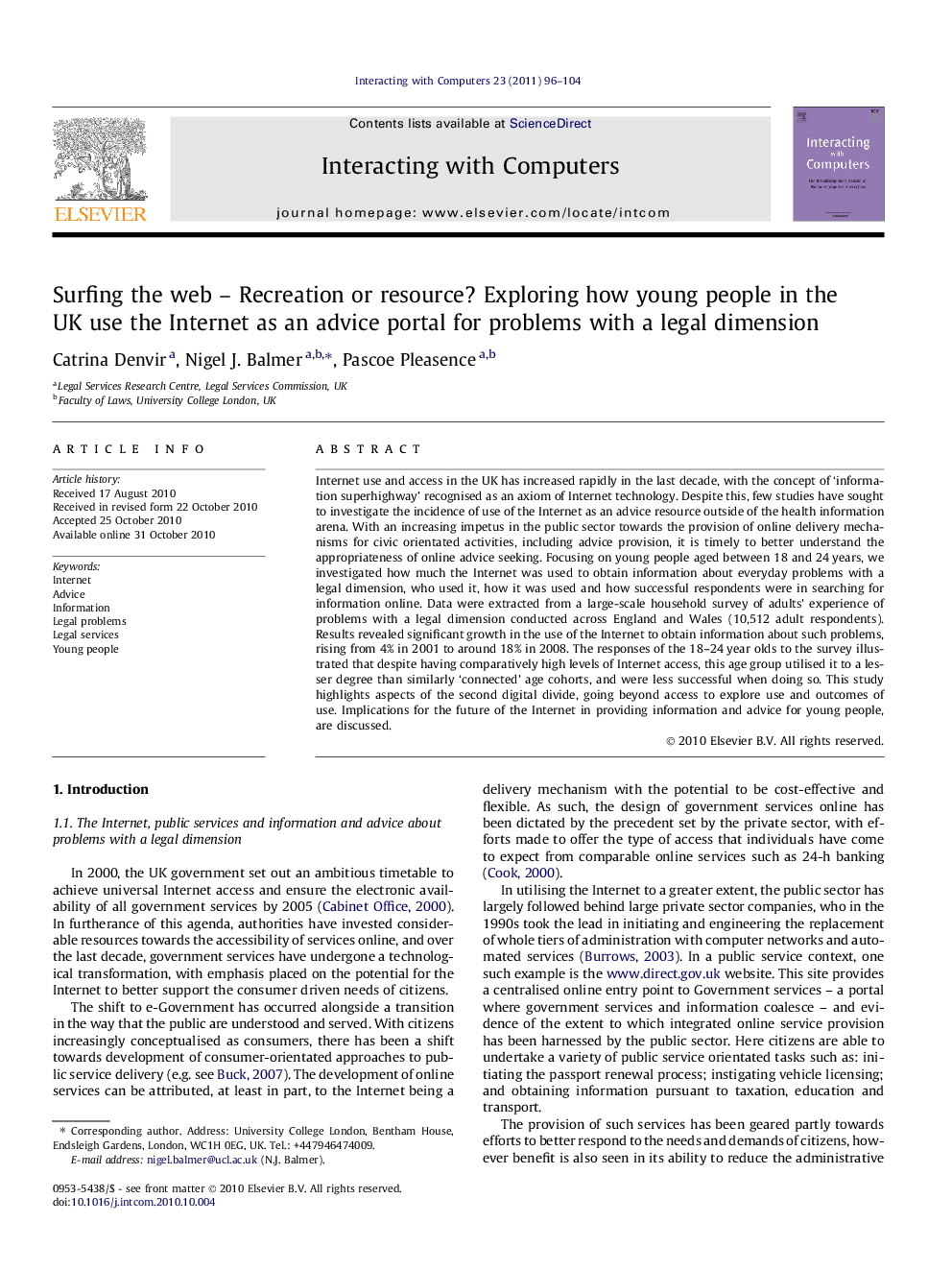| Article ID | Journal | Published Year | Pages | File Type |
|---|---|---|---|---|
| 551761 | Interacting with Computers | 2011 | 9 Pages |
Internet use and access in the UK has increased rapidly in the last decade, with the concept of ‘information superhighway’ recognised as an axiom of Internet technology. Despite this, few studies have sought to investigate the incidence of use of the Internet as an advice resource outside of the health information arena. With an increasing impetus in the public sector towards the provision of online delivery mechanisms for civic orientated activities, including advice provision, it is timely to better understand the appropriateness of online advice seeking. Focusing on young people aged between 18 and 24 years, we investigated how much the Internet was used to obtain information about everyday problems with a legal dimension, who used it, how it was used and how successful respondents were in searching for information online. Data were extracted from a large-scale household survey of adults’ experience of problems with a legal dimension conducted across England and Wales (10,512 adult respondents). Results revealed significant growth in the use of the Internet to obtain information about such problems, rising from 4% in 2001 to around 18% in 2008. The responses of the 18–24 year olds to the survey illustrated that despite having comparatively high levels of Internet access, this age group utilised it to a lesser degree than similarly ‘connected’ age cohorts, and were less successful when doing so. This study highlights aspects of the second digital divide, going beyond access to explore use and outcomes of use. Implications for the future of the Internet in providing information and advice for young people, are discussed.
Research highlights► Use of the Internet to address problems with a legal dimension continues to increase. ► Young people did not use the Internet for problems as often as expected given their access. ► Use of the Internet for problems was related to academic qualifications. ► When using the Internet for problems, young people expected less than other respondents.
